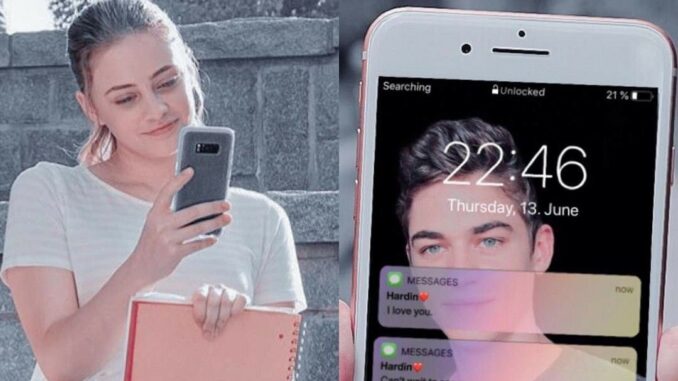
In the world of young adult romance, few characters have divided audiences quite like Hardin Scott from the After series. To some, he’s the embodiment of the tortured bad boy: broken, passionate, and ultimately redeemable. To others, he’s toxic, manipulative, and emotionally abusive—a red flag wrapped in a leather jacket. But as the saga unfolds, especially in After We Fell, it becomes clear that Hardin isn’t either one-dimensional label. He’s not just a villain. He’s not just a victim. He’s both.
And that’s what makes him so fascinating.
Hardin is introduced to us as the archetype: aloof, arrogant, wildly attractive, and emotionally unavailable. He pushes people away, pulls Tessa in, then punishes her for getting close. It’s a dance as old as the genre itself. But what sets Hardin apart is the intensity of his inner world—a world forged in trauma, guilt, and self-loathing.
In After We Fell, we see cracks in the armor. The confrontations with his past aren’t just dramatic plot points—they’re clues to understanding why he behaves the way he does. The discovery that Ken Scott is not his biological father sends him into a spiral. For Hardin, this isn’t just a family secret—it’s a confirmation of every fear he’s ever had: that he is unlovable, unwanted, and inherently broken.
That fear is the lens through which he sees the world—and especially love.
Hardin doesn’t hurt Tessa because he enjoys it. He hurts her because he believes, deep down, that he will eventually lose her. And instead of facing that pain, he tries to control it. He lashes out. He sabotages. He tests her boundaries, not because he doubts her love, but because he doubts his worth. This doesn’t excuse his behavior—but it does explain it.
And that’s the tightrope the After series walks so delicately. It never asks us to forgive Hardin blindly. It shows us why he is the way he is, while also holding him accountable for the damage he causes. It’s a portrait of emotional complexity rarely seen in YA film—and it’s deeply uncomfortable.

Because how do you root for someone who keeps hurting the person he claims to love?
The answer lies in Hardin’s slow, reluctant growth.
Unlike many male leads in romance films, Hardin doesn’t experience a magical overnight transformation. His journey is messy. Painful. Repetitive. He relapses into old behaviors, makes the same mistakes, pushes Tessa away, then begs for her return. But each time, something shifts. A little more self-awareness. A little more willingness to reflect. And behind the anger, a little more fear that this time, he really might lose her for good.
This pattern of self-destruction isn’t just about love—it’s about identity. Hardin doesn’t know who he is without his rage. His trauma has become his personality. He wears it like armor. And every time Tessa tries to love the boy underneath, he panics. Because if he takes off the armor, what’s left?
The film dares to ask that question, and After We Fell gives us glimpses of the answer. We see Hardin’s vulnerability when he talks about his childhood. We see his fear when Tessa mentions moving to Seattle. And perhaps most tragically, we see the walls he builds between them as a way to avoid the inevitable pain of being left behind.
For many viewers, this behavior is infuriating. And it should be.
Hardin crosses lines. He violates trust. He gaslights, yells, storms out, and emotionally isolates the woman he claims to love. These are not romantic qualities—they’re warning signs. And the After series is aware of that. It doesn’t glorify his actions. It shows their impact. It shows Tessa crying. It shows her doubting herself. It shows her slowly learning how to say “no.”
And that’s where the genius of the writing lies.
Because the more Tessa evolves, the more we see Hardin through her eyes. Not just as the boy she fell for, but as a man who needs to change. Not for her. For himself. That shift is subtle, but powerful. It re-centers the story not around “fixing him” but around boundaries. Around Tessa reclaiming her voice, and Hardin learning that love is not entitlement—it’s responsibility.
